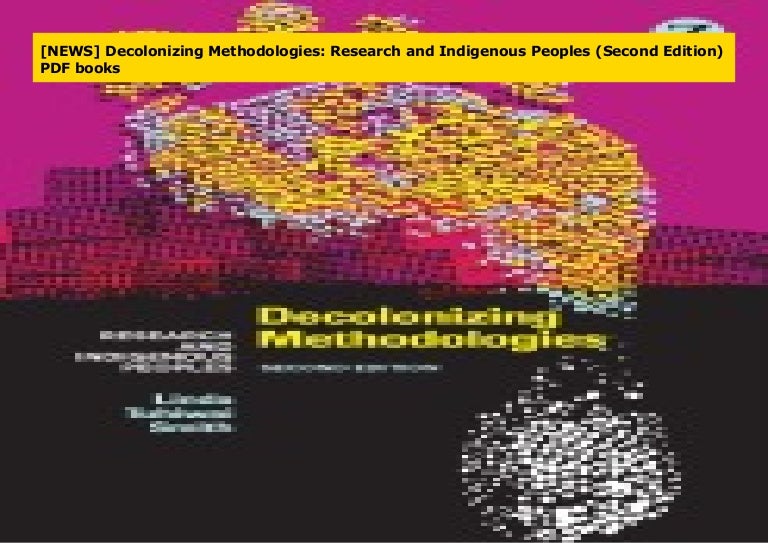
To call it “colonising” is nothing less than emotional politics". Such research is emancipatory in the sense that it is likely to weaken old habits and beliefs and encourage the parochial society’s smooth transition into a wider, possibly global, community. New Zealand historian Peter Munz decried the book's political agenda, noting "what the author calls “colonising” research amounts to nothing more than subjecting a culture’s parochial self-image to critical scrutiny. Laurie Anne Whitt praised the book as a "powerful critique of dominant research methodologies." Ranginui Walker described the book as "a dynamic interpretation of power relations of domination, struggle and emancipation". Smith concludes the book by articulating how she believes Kaupapa Māori research methods could be implemented.ĭecolonizing Methodologies offers a vision of kaupapa Māori research that has been enormously influential.

The book begins with the line "The word itself, 'research', is probably one of the dirtiest words in the indigenous world's vocabulary." Smith contends that Western paradigms of research are "inextricably linked to European imperialism and colonialism."

Originally published in 1999, Decolonizing Methodologies is a foundational text in Indigenous studies that explores the intersections of colonialism and research methodologies.

Decolonizing Methodologies: Research and Indigenous Peoples is a book by Linda Tuhiwai Smith.


 0 kommentar(er)
0 kommentar(er)
